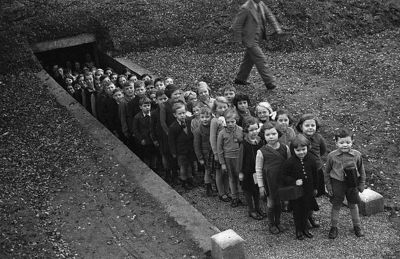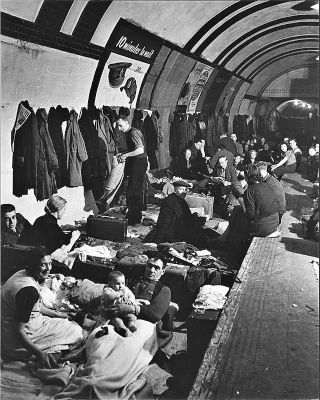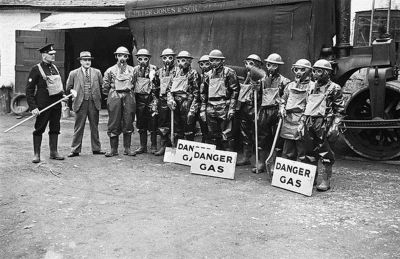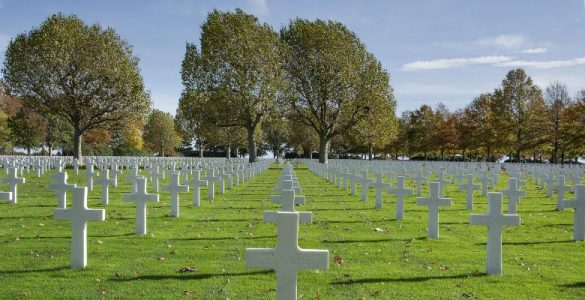Over the past months, the attacks on cities in Ukraine have shocked and saddened the world. Modern technology has also brought “the suffering, horror and destruction” to vivid life. We see in high definition the emotional turmoil of those caught up in the battle or fleeing from the desolation of their homeland.
Acts of Heroism
The impact of warfare may rekindle for some readers memories of the second world war. In particular within major cities such as Liverpool, Manchester and London.
In the expertly researched and gripping The Battle of London 1939-45. Jerry White discusses the impact of lockdown, blackouts, evacuation, bombing, rationing and looting. He also investigates the many acts of individual and community heroism that took place. White displays his outstanding research and personal awareness as he engagingly relates a range of issues communities in Ukraine are currently experiencing.
Key events; Germany invading Czechoslovakia in March 1939, demands by Germany to recover all territory lost to Poland at Versailles in 1919 and also Hitler and Stalin agreeing to a “mutual non-aggression pact” all increased tension and uncertainty.
Withstanding provocation, the British and French governments had a commitment to defend Poland’s independence. On September 1st 1939, Germany invaded Poland by land and sea. Triggering the initial evacuation of children, the vulnerable and also the key workers from London. The Civil Defence units mobilised and the government ordered the imposition of total blackouts before the declaration of war on September 3rd 1939.

“Black Saturday”
The author discusses how the Big Blitz reopened the old wounds of class hostility. Highlighting how the middle-class districts boarded their houses up while cars were laden with luggage in the rush to get away. Working classes suffered in multi-occupied houses, particularly in the East End. All this was in contrast to the “rich swine” (George Orwell) from the West End bolting to the country.

The first big raid of The Blitz took place on “Black Saturday” on September 7th 1940 with particular devastation and desolation around the City, St Pauls and the densely-populated East End.
Many of the underground stations or basements of buildings shelters which Londoners used as shelters were in a filthy condition. They also had to take their valuables with them.
Moreover, the author recounts how after a bomb strike on Bank tube station in 1941. The headless corpse of a woman was found with 950 £1 notes concealed inside her corset. For the vast majority of people, this was a fortune with terraced houses in Hammersmith and Fulham reaching prices of £300 (current value between £1.8m and £3.5m).
Unscrupulous Shopkeepers
Food was expensive and difficult to come by and resulted in the cultivation of gardens and allotments. Some families kept hens, ducks, pigs, rabbits and goats for meat and milk. Jerry White also points to unscrupulous shopkeepers who charged extra for goods and took advantage of shortages and rationing; “no oranges without apples”.
The tragedy is evident as the author discusses how between September 1940 and May 1941; 19,788 Londoners died in air raids and over 70,000 were injured. Over 36,000 houses were destroyed beyond repair and also nearly 50,000 needed major repair.

More positively, Jerry White describes the wide range of voluntary support groups, the WVS and local defence groups. There were countless acts of individual bravery that helped contain the damage to individuals and property. Even including the emotional aspects of war such as loss of loved ones and treasured possessions.
The key questions faced in 1945 were whether London should be rebuilt and if so, how. It was clear that multiple-occupation slum housing, for example, had to be addressed, along with unemployment and malnourishment.
It was a slow process and London’s fortunes only really began to revive at the end of the 1980s.
This book is an outstanding and no-holds-barred insight into how the Second World War affected Londoners.

Bibliographic information
Publisher : Bodley Head (4 Nov 2021)
Language : English
Hardcover : 448 pages
ISBN-10 : 1847923011
ISBN-13 : 978-1847923011
To read more book articles, click here.


